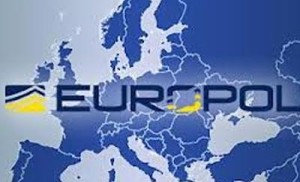
- 159 arrested, 409 suspects interviewed by law enforcement, 766 money mules and 59 money mule organisers identified as a result of the European Money Mule Action ‘EMMA3’, a global law enforcement action week against money muling (20 to 24 November)
- Money mules are individuals recruited by criminal organisations as money laundering intermediaries to receive and transfer illegally obtained funds between bank accounts and/or countries
- EMMA3 saw 26 countries participating, as well as Europol, Eurojust, the European Banking Federation (EBF), 257 banks and private-sector partners
- The joint money muling awareness campaign #DontBeaMule kicks off today to alert the public to this crime
 Law enforcement authorities from 26 countries, supported by Europol, Eurojust and the European Banking Federation (EBF), have joined forces in the third coordinated global action against money muling, with the European Money Mule Action ‘EMMA3’. During an action week from 20 to 24 November 2017, 159 individuals were arrested across Europe, 409 were interviewed by law enforcement authorities and 766 money mules were identified. EMMA3 has evolved from previous editions towards targeting not only the money mules, but also the money mule organisers. This resulted in 59 recruiters/organisers being identified. Money mules are recruited by criminal organisations as money laundering intermediaries to receive and transfer illegally obtained funds between bank accounts and/or countries. This illicit money muling helps fund other forms of organised crime, such as drug dealing, human trafficking and online fraud. With the support of 257 banks and private-sector partners, 1 719 money mule transactions were reported, with total losses amounting to almost EUR 31 million. Among those money mule transactions, more than 90% were linked to cyber-related crimes, such as phishing, online auction fraud, Business Email Compromise (BEC) and CEO fraud. For the first time, romance scams and holiday fraud (booking fraud) were reported by law enforcement authorities. Also, an increasing role of cryptocurrency (Bitcoin) transactions was identified in the money laundering schemes used by the criminals. The third EMMA action week is the continuation of a project conducted under the umbrella of the EMPACT Cybercrime Payment Fraud Operational Action Plan, designed to combat online and payment card fraud, and led by the Netherlands. Building on the success of the first and second EMMA operations, EMMA3 saw the participation of law enforcement authorities from Australia, Austria, Belgium, Bulgaria, Croatia, Czech Republic, Denmark, Finland, France, Germany, Greece, Hungary, Italy, Latvia, Moldova, the Netherlands, Poland, Portugal, Romania, Serbia, Slovenia, Spain, Sweden, Switzerland, United Kingdom, the United States Federal Bureau of Investigation (FBI) and the United States Secret Service (USSS). Europol and Eurojust organised various operational and coordination meetings in The Hague to discuss the unique approach of each Member State to tackle money muling in their respective country. During the action week, both agencies supported the operations by setting up a command post at Europol and a judicial coordination centre at Eurojust to assist the national authorities. This allowed for real-time cross-checks against Europol’s databases of the data gathered during the actions, and intelligence gathering for further analysis, as well as swift forwarding and facilitation of the execution of European Investigation Orders. Europol also supported the actions on the spot by deploying a specialised officer equipped with a mobile office to Italy.
Law enforcement authorities from 26 countries, supported by Europol, Eurojust and the European Banking Federation (EBF), have joined forces in the third coordinated global action against money muling, with the European Money Mule Action ‘EMMA3’. During an action week from 20 to 24 November 2017, 159 individuals were arrested across Europe, 409 were interviewed by law enforcement authorities and 766 money mules were identified. EMMA3 has evolved from previous editions towards targeting not only the money mules, but also the money mule organisers. This resulted in 59 recruiters/organisers being identified. Money mules are recruited by criminal organisations as money laundering intermediaries to receive and transfer illegally obtained funds between bank accounts and/or countries. This illicit money muling helps fund other forms of organised crime, such as drug dealing, human trafficking and online fraud. With the support of 257 banks and private-sector partners, 1 719 money mule transactions were reported, with total losses amounting to almost EUR 31 million. Among those money mule transactions, more than 90% were linked to cyber-related crimes, such as phishing, online auction fraud, Business Email Compromise (BEC) and CEO fraud. For the first time, romance scams and holiday fraud (booking fraud) were reported by law enforcement authorities. Also, an increasing role of cryptocurrency (Bitcoin) transactions was identified in the money laundering schemes used by the criminals. The third EMMA action week is the continuation of a project conducted under the umbrella of the EMPACT Cybercrime Payment Fraud Operational Action Plan, designed to combat online and payment card fraud, and led by the Netherlands. Building on the success of the first and second EMMA operations, EMMA3 saw the participation of law enforcement authorities from Australia, Austria, Belgium, Bulgaria, Croatia, Czech Republic, Denmark, Finland, France, Germany, Greece, Hungary, Italy, Latvia, Moldova, the Netherlands, Poland, Portugal, Romania, Serbia, Slovenia, Spain, Sweden, Switzerland, United Kingdom, the United States Federal Bureau of Investigation (FBI) and the United States Secret Service (USSS). Europol and Eurojust organised various operational and coordination meetings in The Hague to discuss the unique approach of each Member State to tackle money muling in their respective country. During the action week, both agencies supported the operations by setting up a command post at Europol and a judicial coordination centre at Eurojust to assist the national authorities. This allowed for real-time cross-checks against Europol’s databases of the data gathered during the actions, and intelligence gathering for further analysis, as well as swift forwarding and facilitation of the execution of European Investigation Orders. Europol also supported the actions on the spot by deploying a specialised officer equipped with a mobile office to Italy.
c.s. – Europol





